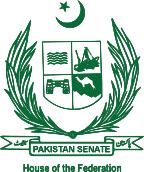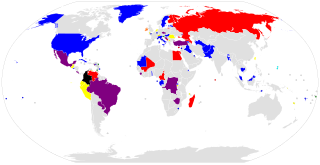A member of parliament (MP) is the representative in parliament of the people who live in their electoral district. In many countries with bicameral parliaments, this term refers only to members of the lower house since upper house members often have a different title. The terms congressman/congresswoman or deputy are equivalent terms used in other jurisdictions. The term parliamentarian is also sometimes used for members of parliament, but this may also be used to refer to unelected government officials with specific roles in a parliament and other expert advisers on parliamentary procedure such as the Senate Parliamentarian in the United States. The term is also used to the characteristic of performing the duties of a member of a legislature, for example: "The two party leaders often disagreed on issues, but both were excellent parliamentarians and cooperated to get many good things done."

The president of Pakistan, officially the President of the Islamic Republic of Pakistan, is the ceremonial head of state of Pakistan and the commander-in-chief of the Pakistan Armed Forces.

The prime minister of Pakistan is the constitutional head of government of the Islamic Republic of Pakistan, designated as the "Chief Executive of the Islamic Republic".

Senate of Pakistan or Aiwān-e-Bālā Pākistān, is the upper legislative chamber of the bicameral legislature of Pakistan, and together with the National Assembly makes up the Parliament of Pakistan.

The National Assembly or Aiwān-e-Zairīñ of Pākistān is the lower legislative house of the bicameral Parliament of Pakistan, which also comprises the Senate of Pakistan. The National Assembly and the Senate both convene at Parliament House in Islamabad, the capital of Pakistan. The National Assembly is a democratically elected body consisting of a total of 342 members who are referred to as Members of the National Assembly (MNAs), of which 272 are directly elected members and 70 reserved seats for women and religious minorities from all over the country. A political party or a coalition must secure 172 seats to obtain and preserve a majority.

The Parliament of Pakistan is the federal and supreme legislative body of Pakistan. It is a bicameral federal legislature that consists of the Senate as the upper house and the National Assembly as the lower house. According to the Constitution of Pakistan, the President of Pakistan is also a component of the Parliament. The National Assembly is elected for a five-year term on the basis of adult franchise and one-man one-vote. The tenure of a Member of the National Assembly is for the duration of the house, or sooner, in case the Member dies or resigns. The tenure of the National Assembly also comes to an end if dissolved on the advice of the Prime Minister or by the president in his discretion under the Constitution.
This electoral calendar 2007 lists the national/federal direct elections held in 2007 in the de jure and de facto sovereign states and their dependent territories. Referendums are included, although they are not elections. By-elections are not included.

The Chairman of the Senate of Pakistan, is the president-chair of the Senate of Pakistan. According to the Constitution of Pakistan, the chairman is a presiding official and that Senate must choose a chairman and deputy chairman for a time interval of three years.

The Cabinet of Pakistan is a formal body composed of senior government officials chosen and led by the Prime Minister. All cabinet members sworn in are designated Minister, and are seated at their respective ministries located in the Pakistan Secretariat.

This national electoral calendar for 2012 lists the national/federal direct elections that were held in 2012 in all sovereign states and their dependent territories. By-elections are excluded, though national referendums are included.
This local electoral calendar for 2014 lists the subnational elections held in 2014. Referendums, retention elections, and national by-elections are also included.
This local electoral calendar for 2016 lists the subnational elections held in 2016. Referendums, retention elections, and national by-elections are also included.
Pakistan Institute for Parliamentary Services (PIPS) was established in December 2008 by the Parliament of Pakistan and is located in Islamabad. پاکستان In May 2012, Under Secretary of State for Public Diplomacy and Public Affairs Tara Sonenshine joined U.S. Ambassador Cameron Munter and National Assembly Speaker Dr. Fahmida Mirza, in Islamabad, to celebrate the opening of the Pakistan Institute for Parliamentary Service (PIPS).

This national electoral calendar for 2018 lists the national/federal direct elections that were held in 2018 in all sovereign states and their dependent territories. By-elections are excluded, though national referendums are included.

This national electoral calendar for 2019 lists the national/federal direct elections that were held in 2019 in all sovereign states and their dependent territories. By-elections are excluded, though national referendums are included.
Since Pakistan's independence on 14 August 1947, women have been active participants in parliamentary politics. Their representation remained low in the first and second Constituent Assemblies, however the amendments to the Constitution of Pakistan paved way for their increased participation in the parliament. Besides, the progressive laws helped improve their participation in legislative and executive positions over the years. Since 2002, women politicians have notable representation in the federal as well as provincial assemblies.

This national electoral calendar for 2020 lists the national/federal direct elections that were held in 2020 in all sovereign states and their dependent territories. By-elections are excluded, though national referendums are included.

Not to be confused with Member of Parliament, Senate of Pakistan

A Member of Parliament in the Senate of Pakistan is the representative of the Pakistani states to the one of the two houses of the Parliament of Pakistan. The National Assembly of Pakistan and Senate of Pakistan, the two houses that make up the Pakistani Parliament, are bicameral.
This page is based on this
Wikipedia article Text is available under the
CC BY-SA 4.0 license; additional terms may apply.
Images, videos and audio are available under their respective licenses.











